
“てform can be difficult to use because of its complex conjugated forms.
Can you answer all of the following questions?”
Review
てform of a Verb + から (~て + から)
Vてから means “after doing (verb)…”
Quiz1【The conjugation of the てform】
Answer the てform of these verbs.

①彼に ( )から、 会社に行きます。
KARENI ( )KARA KAISHANI IKIMASU.

②毎朝、牛乳を( )から、運動をします。
MAIASA GYU-NYU-WO ( ) KARA UNDOUWO SHIMASU.

③母は、ご飯を( )から、歯をみがきます。
HAHAWA GOHANWO ( )KARA HAWO MIGAKIMASU.

④兄は、運動( )から、シャワーを浴びます。
ANIWA UNDOU( )KARA SHAWA-WO ABIMASU.

⑤家に友達が( )から、料理をはじめます。
IENI TOMODACHIGA( )KARA RYO-RIWO HAJIMEMASU.
Answers and Review for Quiz 1
①あってから
彼に あってから、 会社に行きます。
KARENI ATTEKARA KAISHANI IKIMASU.
ーI will go to the office after meeting him.
②のんでから
毎朝、牛乳をのんでから、運動をします。
MAIASA GYU-NYU-WO NONDEKARA UNDOUWO SHIMASU.
ーI exercise every morning after drinking a cup of milk.
③たべてから
母は、ご飯をたべてから、歯をみがきます。
HAHAWA GOHANWO TABETEKARA HAWOMIGAKIMASU.
ーMy mom brushes her teeth after having breakfast.
④してから
兄は、運動してから、シャワーを浴びます。
ANIHA UNDOUSHITEKARA SHAWA-WO ABIMASU.
ーMy brother takes a shower after exercising.
⑤きてから
家に友達がきてから、料理をはじめます。
IENI TOMODACHIGAKITEKARA RYO-RIWO HAJIMEMASU.
ーI’ll start cooking after my friends come to my house.
Were you able to answer all the questions?
Even if you didn’t answer everything, please don’t feel nervous!
Let’s practice together!
Let’s practice how to conjugate the てform
①あう
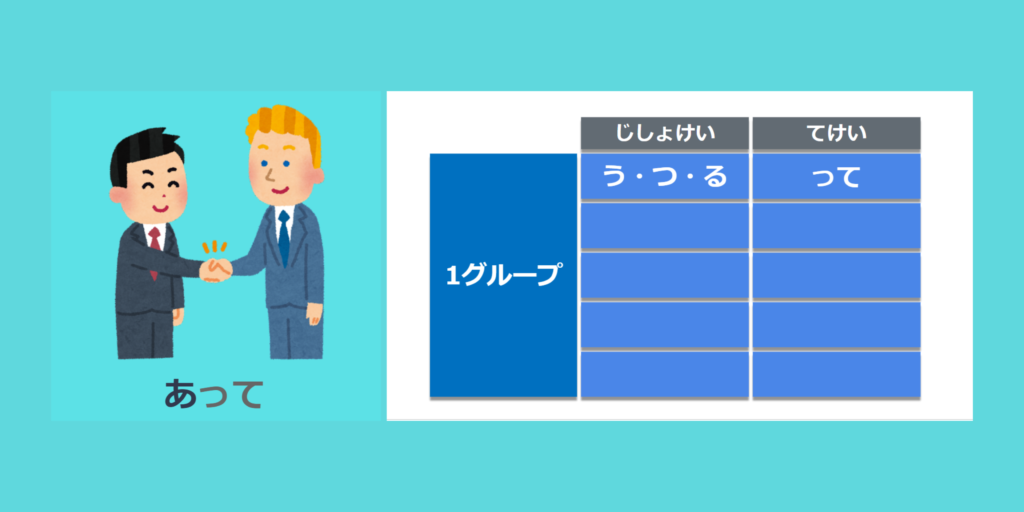
あう is a verb in group 1.
Also, the last Hiragana of あう is “う”.
That means that the てform of あう is あって.
②のむ
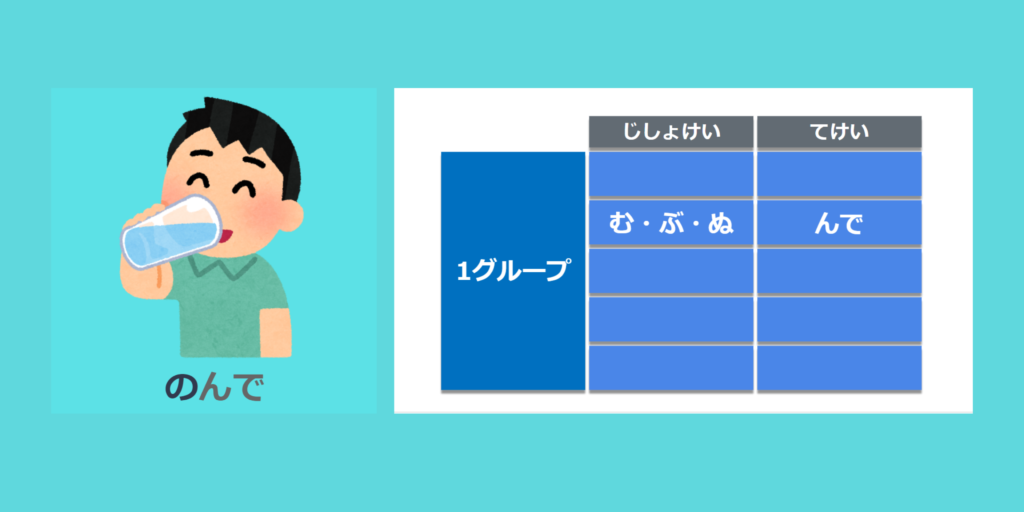
のむ is a verb in group1.
Also, the last Hiragana of のむ is “む”.
That means that the てform of のむ is のんで.
③たべる
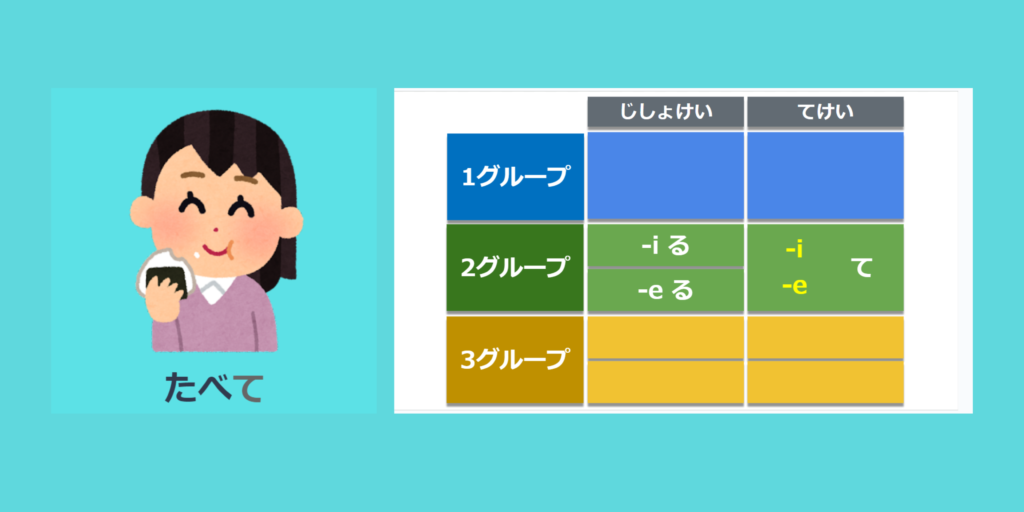
たべる is a verb in group 2.
Because of that, the てform of たべる is たべて.
④運動する
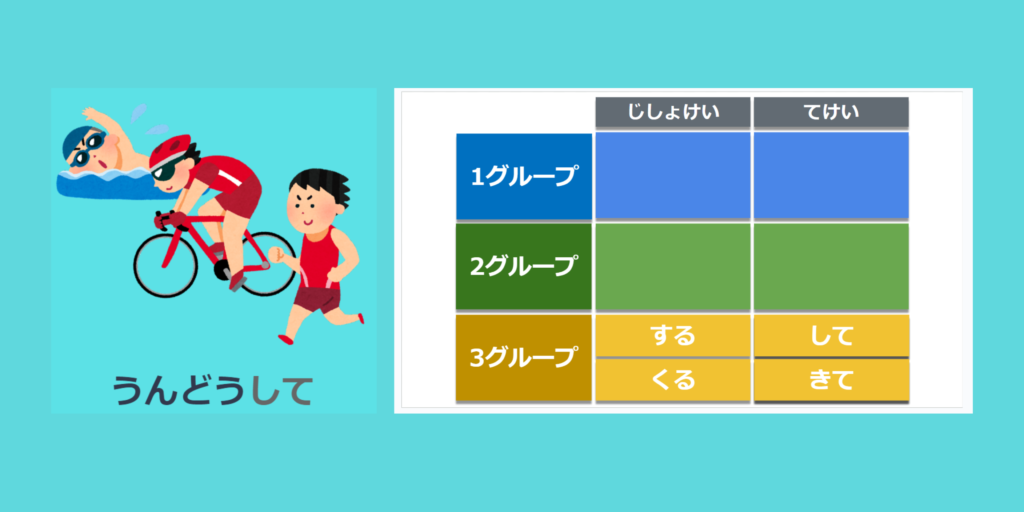
運動する(する verbs) is a verb in group 3.
Since 運動する is a verb in group 3, the てform will be 運動して.
⑤くる
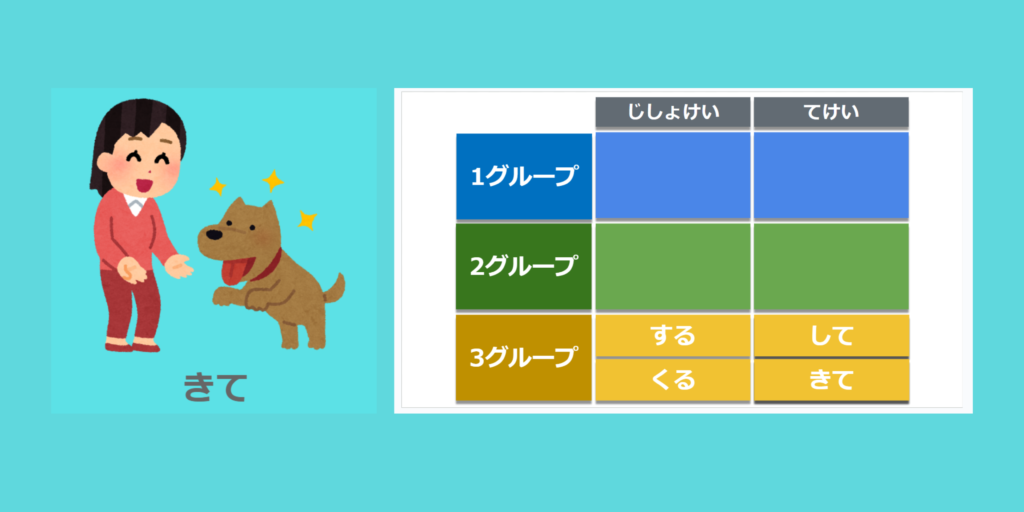
くる is a verb in the group 3.
That’s why てform of くる is きて.
Quiz2【Practice the てform more】
Are you ready to practice てform some more?
Please choose the correct conjugation.
①父と( )から、先生に電話をします。
1はなせて 2はなんで
3はなすって 4はなして
②家に( )から、手を洗ってね。
1ついて 2ついって 3つきて 4つくって
③映画館に( )から、ポップコーンとコーラを買おうよ!
1いくて 2いって 3いいて 4いんで
④日本では くつを ( )から、家に入りますよ。
1ぬんで 2ぬきて 3ぬいで 4ぬって
⑤髪を( )から、モテるようになった。嬉しい!
1きて 2きって 3きいて 4きて
Answers and Review for Quiz 2
Let’s check the correct answers together.
I’ll also explain how to conjugate these verbs correctly!
①4
父と はなしてから、先生に電話をします。
CHICHITO HANASHITEKARA SENSEINI DENWAWO SHIMASU.
ーI’ll call my teacher after talking to my father.
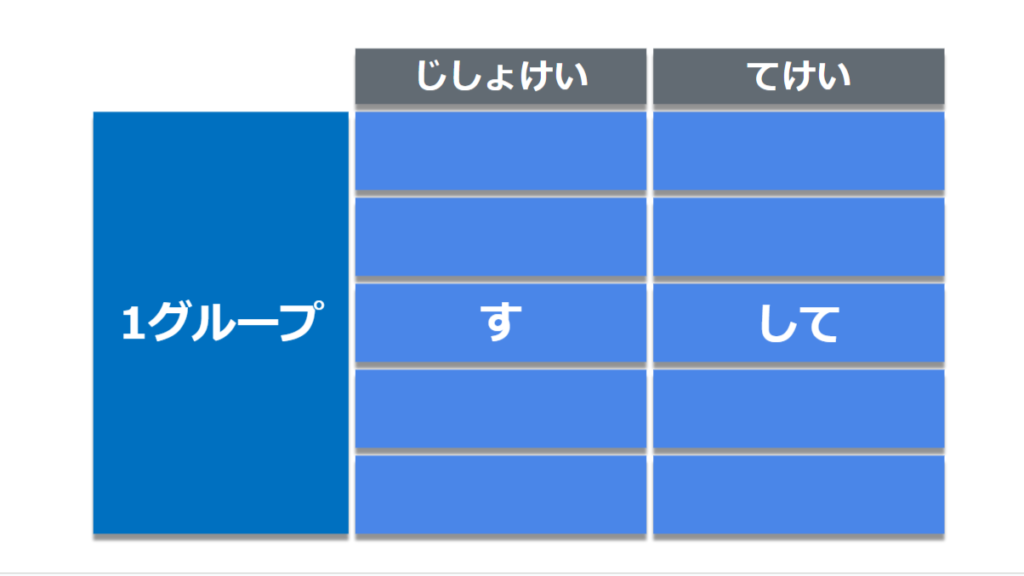
はなす is a verb in group 1.
Also, the last Hiragana of はなす is “す”.
That means that the てform of はなす is はなして.
②1
家に ついてから、手を洗ってね。
IENI TSUITEKARA TEWO ARATTENE.
ーWash your hands after arriving home.
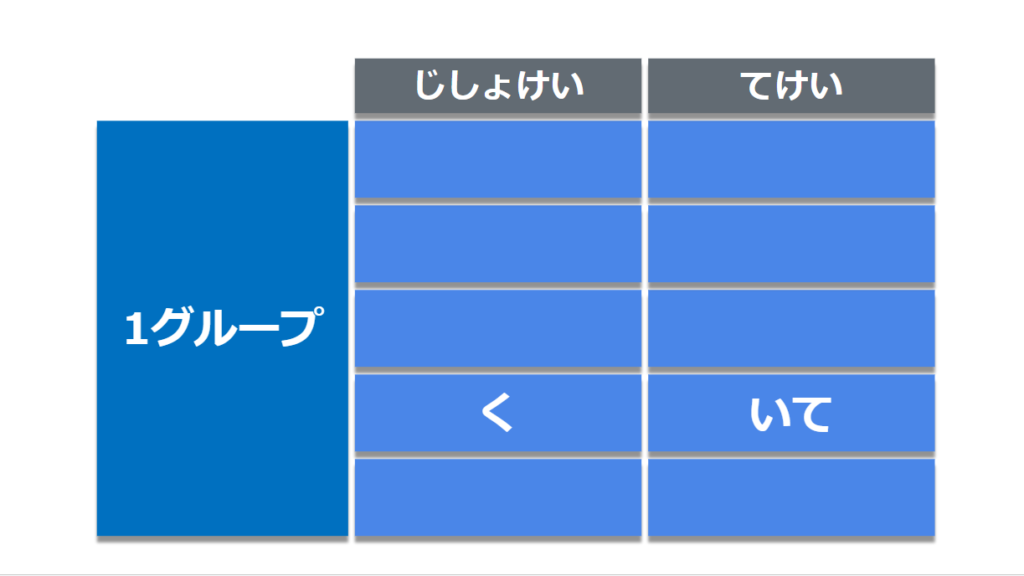
つく is a verb in group 1.
Also, the last Hiragana of つく is “く”.
That means that the てform of つく is ついて.
③2
映画館に いってから、ポップコーンとコーラを買おうよ!
EIGAKAN NI ITTEKARA POPPUKO-N TO KO-RA WO KAOUYO.
ーLet’s buy popcorn and soda when we get to the theater.
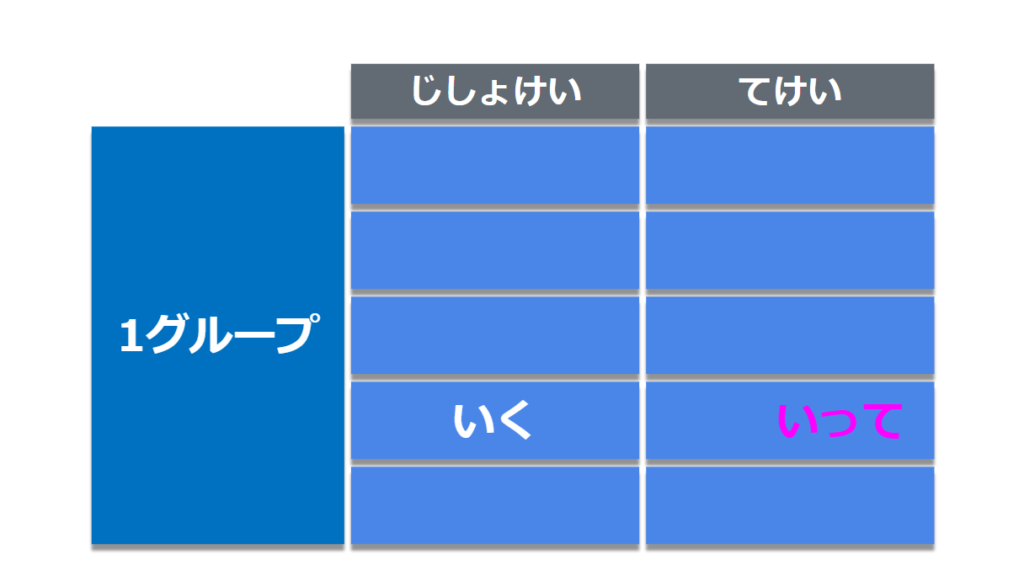
※いく is an irregular verb in group 1.
The last Hiragana of いく is “く” but it doesn’t conjugate into “いいて” like “つく”.
Please be careful with this verb!! The てform of いく is いって.
④3
日本では くつを ぬいでから、家に入りますよ。
NIHONDEHA KUTSUWO NUIDEKARA IENI HAIRIMASUYO.
ーIn Japan, it’s common to enter a house only after taking off your shoes.
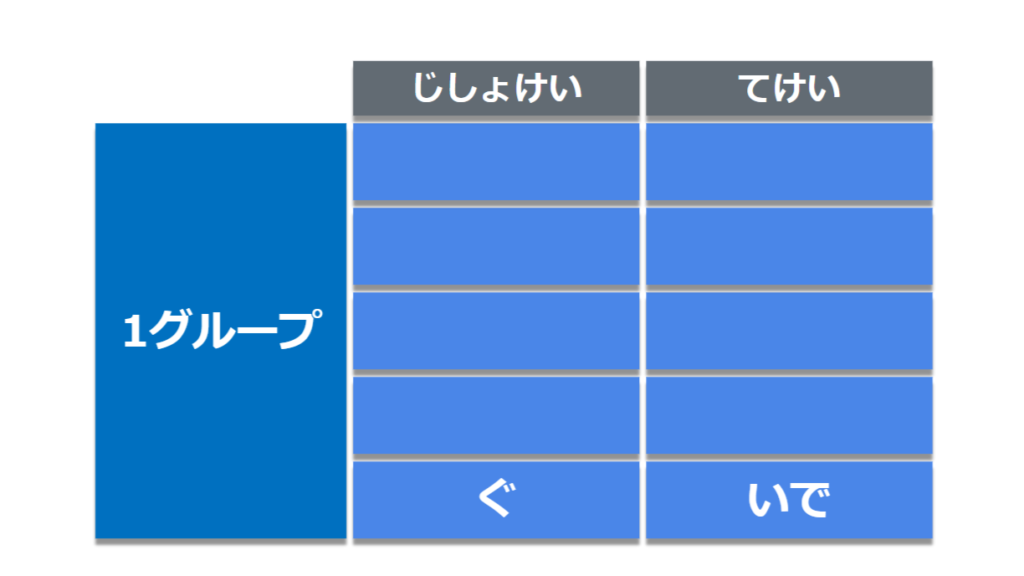
ぬぐ is a verb in group 1.
Since ぬぐ is a verb in group 1 and the last hiragana is ぐ, we know that the てform of ぬぐ is ぬいで.
⑤2
髪を きってから、モテるようになった。嬉しい!
KAMIWO KITTEKARA MOTERUYOUNI NATTA. URESHII
ーI started to feel more attractive after cutting my hair.
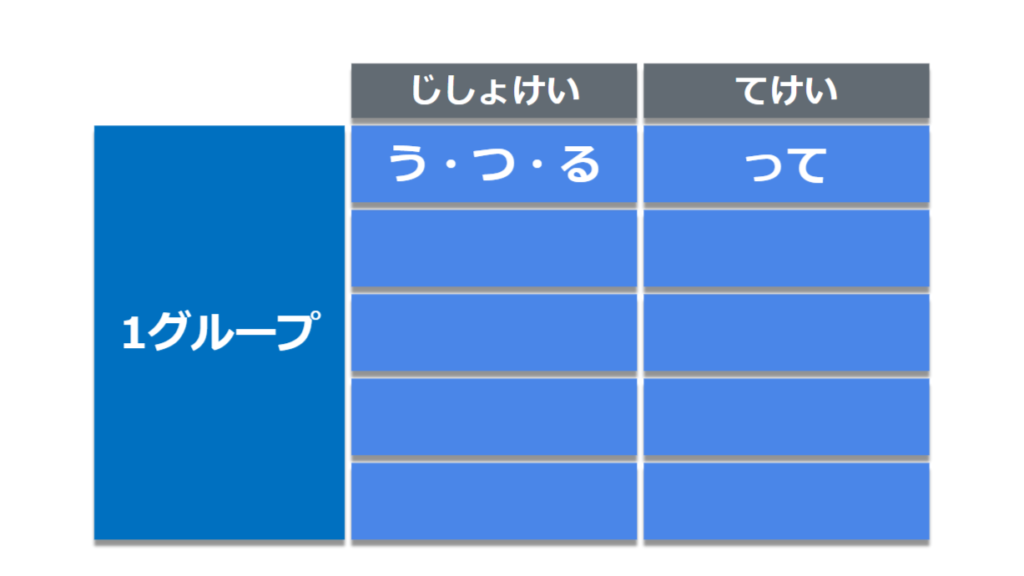
※Make sure to note that there are multiple words spelled ‘きる’ in Japanese.
きる(切る:to cut) is a verb in group 1.
※It is not in group 2.
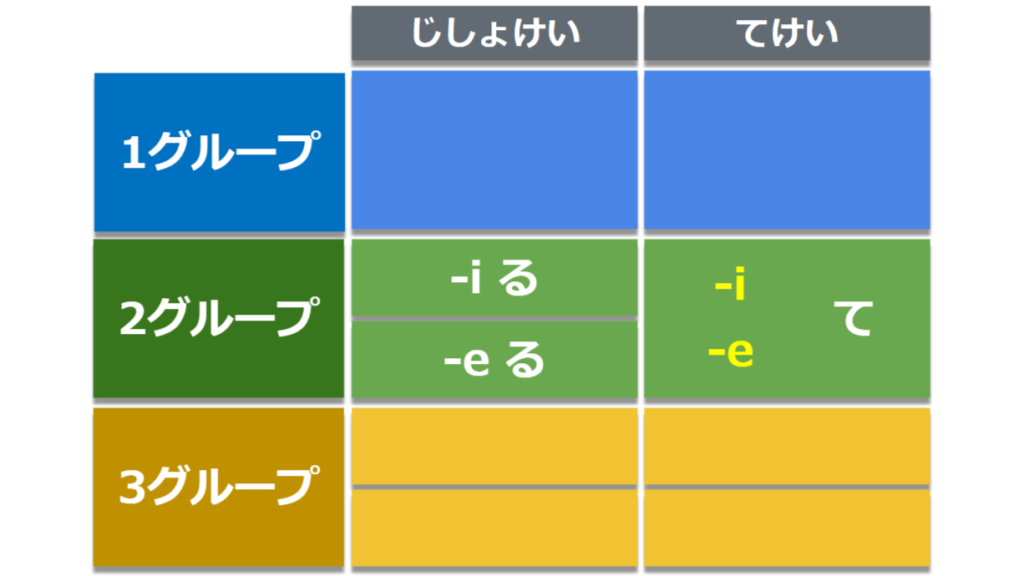
Meanwhile, きる(着る : to wear)is in group 2.That’s why てform of 切る(to cut) is きって(切って), and theてform of 着る(to wear) is きて(着て).
Make sure to double check which group a verb belongs in when conjugating!
A quick wrap-up
Did you understand the conjugations of the てform?
If you can use it correctly, you might be able to talk with Japanese people like a native speaker!
Please don’t forget these rules and review them whenever you forget them.
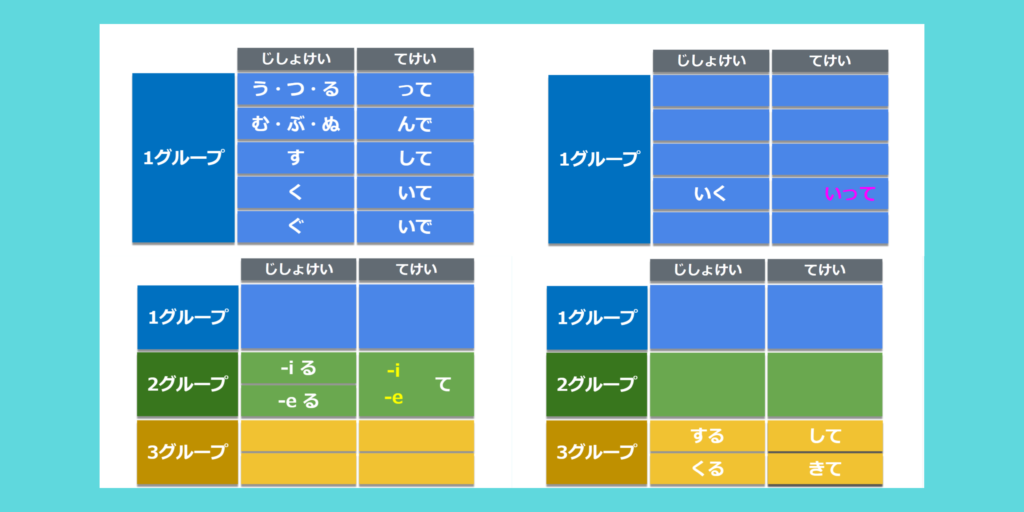

Wouldn’t it be a great way to practice if you could try using the grammar we learned today in a real conversation with Japanese friends?
Ohanasi Japanese Language School has 3 differences compared to other schools.
1.You can ask your questions face to face outside of lessons!
2.You can discuss with English learners through writing whenever you want!
3.You can find language partners safely!
Please check our website if you would like to experience a new way to learn Japanese.







